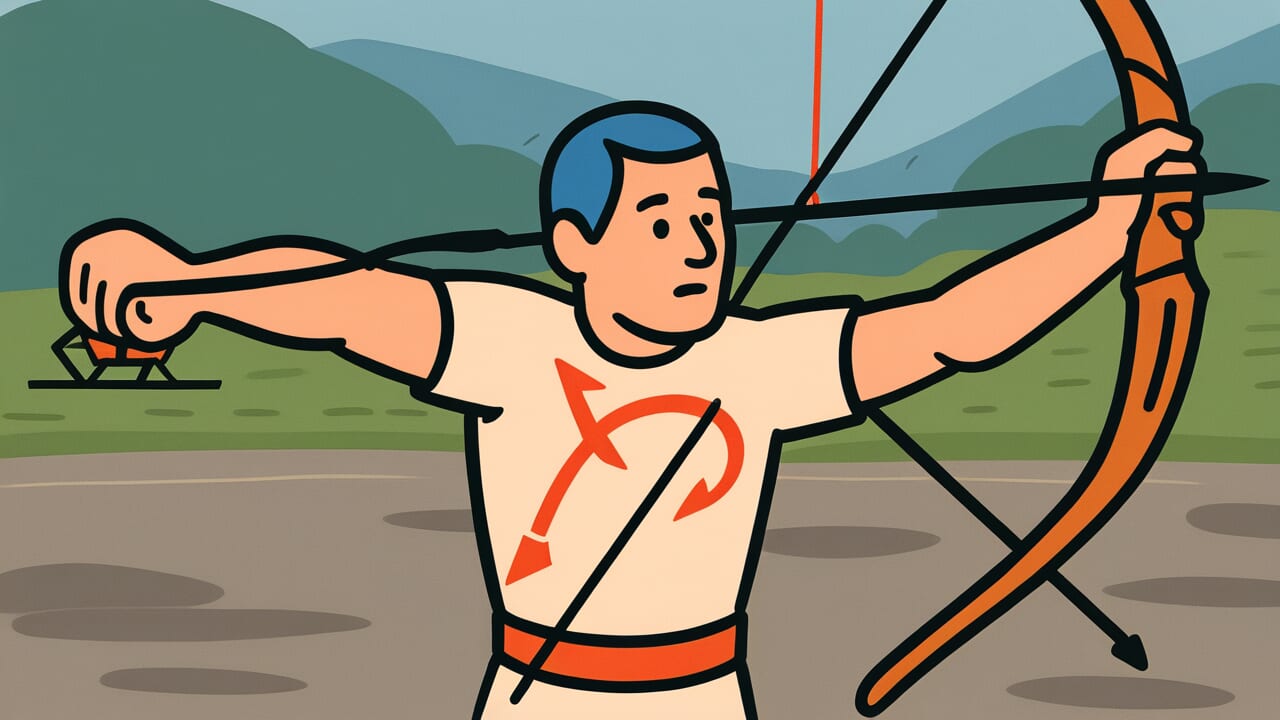How to Read “A crack soldier with a bare bow”
Subiki no seihei
Meaning of “A crack soldier with a bare bow”
“A crack soldier with a bare bow” is a proverb used ironically to describe someone who excels in theory and basic training but proves completely useless in real situations.
This person has perfect textbook knowledge and scores high on tests, yet can’t do anything when it comes to actual work. They’ve memorized the manual but can’t handle unexpected situations.
The saying points out this kind of “top-heavy” state where knowledge doesn’t translate to action.
This proverb is used when you want to teach that knowledge and theory alone are not enough. Real practical experience is what truly matters.
It especially serves as a warning to people who spend all their time on formal training and study while neglecting to gain actual experience.
Even today, this saying applies well to situations like having credentials but no work experience, or being good at presentations but lacking follow-through.
Origin and Etymology
The “sobiki” in “A crack soldier with a bare bow” refers to repeatedly practicing basic movements in martial arts and military strategy.
It meant fundamental training that had to be mastered before real combat. This included drawing a sword from its sheath, holding a spear in proper form, and positioning oneself to draw a bow.
No clear written records explain the exact origin of this phrase. However, it likely relates to a problem often discussed in samurai society during the Edo period.
There was a recognized gap between dojo practice and actual battlefield performance.
During the peaceful Edo era, many samurai had no real combat experience. They could perform practice forms beautifully but were useless when it really mattered.
“Seihei” means an excellent soldier. But here it’s used ironically.
Someone might be the best at practicing basic movements and look like a splendid soldier. Yet when actual battle comes, they can’t perform at all.
This is how people came to be called “a crack soldier with a bare bow.” The saying expresses the gap between theory and practice, between knowledge and experience, using the clear example of martial arts.
Usage Examples
- He only studies business management theory, so I worry he’ll become a crack soldier with a bare bow
- Studying for certification exams is important, but being a crack soldier with a bare bow is meaningless, so let’s gain field experience
Universal Wisdom
The proverb “A crack soldier with a bare bow” points to a fundamental illusion that humans easily fall into. It’s the illusion of thinking that knowing something and being able to do something are the same thing.
When we practice repeatedly in a safe environment, we feel like we’ve truly mastered it. We read textbooks, solve problems, and memorize correct answers.
Through this process, our knowledge certainly increases and our understanding deepens.
However, real situations contain countless variables that aren’t in textbooks. Unexpected developments, time pressure, relationships with others, and above all, the tension of knowing that failure can’t be undone.
All these things test our abilities.
This proverb has been passed down for so long because humans are fundamentally creatures who prefer “preparation.” While preparing, we don’t fail.
While studying, we don’t yet have to face our own powerlessness.
But if we only prepare forever, we never gain real strength.
Our ancestors understood this truth. Real growth can only come from jumping into practical situations while still imperfect, failing, being embarrassed, and still standing back up.
Knowledge is merely a starting point. Experience is what truly trains a person.
When AI Hears This
According to ecological research, when multiple species coexist in the same environment, they avoid competition by using slightly different resources.
For example, finches in the Galápagos Islands changed their beak shapes to eat different sized seeds, avoiding direct conflict. This is called “niche differentiation.”
The strategy shown by “A crack soldier with a bare bow” is exactly this principle. The act of stripping away decoration seems like withdrawing from competition.
But actually, it’s intentionally leaving the main battlefield of competing in showiness and fighting on a different dimension.
In other words, rather than the overcrowded competitive space of the decoration market, it secures a different ecological niche of practicality and functionality.
What’s interesting is research showing that organisms taking this strategy in nature have higher long-term survival rates.
Species with flashy decorations are easily found by predators and have high maintenance costs.
Meanwhile, plain species optimized for specific environments thrive stably as long as that environment continues. Many deep-sea fish lost their color because they redirected the energy for making pigments elsewhere in a world without light.
The choice of “sobiki” is actually optimization of resource allocation. It concentrates the energy that would go to decoration into improving real ability.
This isn’t a weak person’s strategy but a sophisticated survival strategy that changes the very dimension of competition.
Lessons for Today
What this proverb teaches us today is the importance of balancing learning and practice.
In our current age overflowing with information, gaining knowledge has become easier than before. But precisely because of this, we need to be conscious of the difference between “knowing” and “being able to do.”
If you’re learning something new, start small practical applications early on. You don’t need to wait until your preparation is perfect.
The experience of challenging yourself while still immature and learning from failure is what builds real strength.
It’s the same in the workplace, at school, or in hobbies. Studying theory is important, but you shouldn’t be satisfied with just that.
Only by actually trying it do you see what you’re lacking and what you should learn.
And don’t forget this. Everyone starts as “a crack soldier with a bare bow.”
What matters is having the courage to take that first step. Not fearing failure and accumulating experience.
It’s through that process that you can gain real power.


Comments